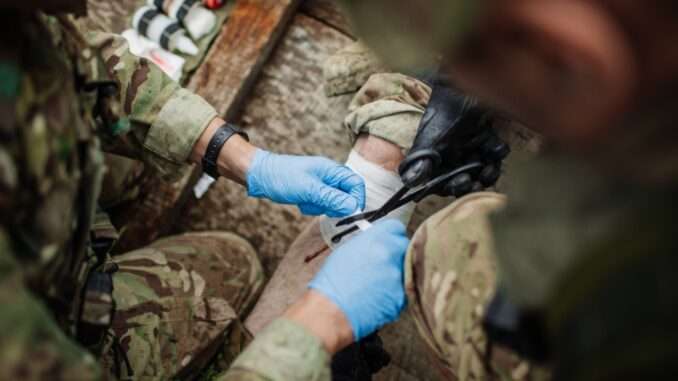

Fergus Maguire – Operations Director at Aspen Medical UAE
The increasing frequency and severity of natural and man-made disasters, exacerbated by climate change and escalating geopolitical tensions, have put the role of deployable healthcare front and centre in effective crisis response. This agile approach to emergency healthcare delivery enables rapid medical intervention when traditional healthcare infrastructure is compromised or inaccessible. And the results are self-evident: deployable healthcare solutions have demonstrated remarkable efficacy in preventing fatalities, treating casualties and facilitating medical evacuations during crises, significantly improving clinical outcomes in the most challenging environments around the world.
Tailored solutions: deployable healthcare in crisis situations
The concept of deployable healthcare has become an indispensable component of comprehensive disaster response strategies in recent years. Modern deployable healthcare facilities range from compact medical units to fully equipped field hospitals capable of delivering sophisticated medical care in austere environments. These facilities are designed with mobility and functionality at their core, allowing for rapid deployment and operational readiness in areas where conventional healthcare systems are unable to cope. The versatility of these solutions enables a tailored approach to different types of emergencies, from natural disasters and conflict zones to infectious disease outbreaks and humanitarian crises.
Logistics planning: the backbone of effective deployable healthcare
The deployment of effective field hospitals and mobile medical units requires expertise that extends beyond just clinical knowledge. Logistics planning stands as perhaps the most crucial non-medical component of successful deployable healthcare operations. The ability to rapidly mobilise personnel, equipment and supplies to remote or severely affected locations often determines the timeliness and effectiveness of the medical response. This includes establishing secure supply chains and maintaining operational capacity in environments with limited infrastructure, including inventory control, supply visibility and maintenance protocols. Expert logistics planning management ensures that medical teams can focus on providing care rather than resolving resource constraints.
Specialised expertise: crisis-trained medical personnel
Deployable healthcare covers different types of emergencies. Trauma response in conflict zones or natural disasters, for example, require mobile surgical units equipped with state-of-the-art operating theatres while infectious disease outbreaks require advanced isolation capabilities and specialised decontamination systems These specialised capabilities require not only appropriate equipment but also highly trained personnel with experience working in challenging environments. Medical professionals who staff deployable healthcare facilities must possess both clinical expertise and the adaptability to work effectively under extreme conditions with limited resources. Continuous training and simulation exercises ensure these teams can respond effectively to various emergency scenarios.
Collaborative approach: international coordination in crisis response
Regular and extensive inter-agency and international coordination forms another pillar of effective deployable healthcare. Operating in unfamiliar territories necessitates close collaboration with numerous organisations and authorities, including local healthcare providers, government agencies, military forces and international humanitarian organisations. This coordination ensures that deployable healthcare facilities complement existing resources rather than duplicating efforts, thus maximising the collective impact of disaster response initiatives.
Supporting and receiving support from host nations is also fundamental to successful deployable healthcare operations. Effective coordination requires established communication protocols, clear delineation of responsibilities and mutual respect among participating entities. A collaborative approach enables deployable healthcare to serve significantly more affected individuals than would be possible through isolated efforts.
Adaptability and innovation: keeping pace with global challenges
Deployable healthcare represents more than just temporary medical facilities; it embodies a comprehensive approach to crisis response that integrates advanced and agile medical capabilities with robust logistical systems and international coordination mechanisms.
As global challenges continue to evolve, further innovation in deployable healthcare will remain essential for strengthening community resilience and ensuring that life-saving medical care reaches those who need it most, regardless of location or circumstances. The future development of deployable healthcare will likely incorporate additional technological advances, including telemedicine capabilities, AI-assisted diagnostics and more sustainable operational models. These innovations will further enhance the delivery of high-quality care in resource-constrained environments. What will remain constant, however, is a collaborative approach in deployable healthcare that benefits those most affected by such crises: people and communities.



Be the first to comment